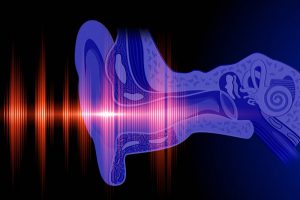Akouos is working hard to develop gene therapies that could potentially restore hearing. The genetic medicines company uses an adeno-associated viral (AAV) vector-based gene therapy platform to develop precision therapies to restore, improve, or preserve hearing. Focusing on sensorineural hearing loss, Akouos is trying to correct mutations on the otoferlin (OTOF) gene to enable patients to regain their hearing.
The Boston-based company filed a $100 million IPO three months on the heels of a $105 million Series B funding round. 5AM Ventures, New Enterprise Associates, Novartis Venture Fund, and Partners Innovation Fund led the round. In the midst of the funding, Akouos also appointed some new board leadership - Vicki Sato, PhD, from Vertex and Biogen, and Heather Preston, MD, from Pivotal BioVenture Partners.
“This year is poised to be one of growth for Akouos, and we are delighted to have the support from a world-class syndicate of investors in our Series B financing to advance our current programs and pipeline of potential genetic medicines for hearing loss,” said CEO, president, and founder Dr. Manny Simons. “We are also pleased to welcome Drs. Sato and Preston, two highly regarded life science leaders, to our board of directors. Together, these milestones bring us closer to potentially providing new options to the deaf and hard-of-hearing community, who have limited therapeutic options today.”
The Series B proceeds will go towards Akouos’ s primary program, AK-OTOF, including a clinical trial which is projected to produce data by 2022. While genetic therapies present a lot of potential for hearing loss correction, there have been logistical roadblocks along the way. “We believe genetic medicine development for hearing disorders has been hindered by the unique anatomical delivery challenges of the inner ear,” stated Akouos in its filing.
However, the biotech has developed a new delivery approach that is minimally invasive, which will “target cell population where the full-length transgene is split into two vectors, known as a dual vector method.” This type of technology has not been used in hearing loss therapies before, and Akouos hopes to pave the way for future gene therapy tech.























